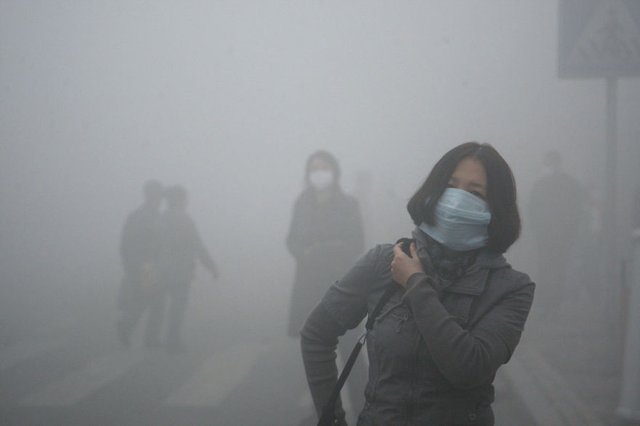Our Best is not Good enough: Facing the New Luddites
I was recently reading Peter Thiel's book "Zero to One: Notes on Startups, or How to Build the Future" and came across an intriguing excerpt:
The age of globalization has made it easy to imagine that the decades ahead will bring more convergence and more sameness. Even our everyday language suggests we believe in a kind of technological end of history: the division of the world into so-called developed and developing nations implies that the "developed" world has already achieved the achievable, and that poorer nations just need to catch up.
But I don't think that's true. My own answer to the contrarian question is that most people think the future of the world will be defined by globalization, but the truth is that technology matters more. Without technological change, if China doubles its energy production over the next two decades, it will also double its air pollution. If every one of India's hundreds of millions of households were to live the way Americans already do—using only today's tools—the result would be environmentally catastrophic. Spreading old ways to create wealth around the world will result in devastation, not riches. In a world of scarce resources, globalization without new technology is unsustainable.
(p. 10)
The Luddites were a group of textile workers in 19th century England, who, concerned with the prospect of losing their jobs through the adoption of weaving machinery, took to destroying the machinery as a form of protest.
What is the Issue Then?
The developed countries of today have created the highest living-standard in the history of mankind. This achievement is primarily the result of technology—of inventing solutions to problems that work and can be replicated over and over again, freeing us from the gruelling labour that went along with our previous solutions. These advancements decrease the sum of labour that needs to be undertaken by a society of people as a whole, and are therefore responsible for the accumulation of wealth in society.
The technologies we develop, however, can be used only if certain conditions are present: human and natural resources, infrastructure, a "grid" of supporting technologies, and so on. Therefore, they cannot simply be transferred from one place to another without significant changes in implementation. Even if great engineering solutions exist for adapting technologies like the blockchain and automate important areas of business, implementing them will take a great amount of time, testing and persistance.
The present state of science and technology is far from perfect. Moreover, it is insufficient to solve our most pressing problems. Globalization and access to information technology has made people even more aware of the giant gaps of prosperity between the nations of the world. But the current basis for the living standard of the most prosperous nations, being unsustainable by itself, is not the road to global prosperity. In fact, it is destroying the environment.
Smog in Bejing. Reportedly, air pollution kills hundreds of thousands of citizens each year and has made cancer China's leading cause of death.
Can we Do Something About it?
The Luddite idea of "the end of technology" should be challenged at every opportunity. People tend to be conservative when it comes to solutions they are familiar with, as opposed to something new, that requires re-education and exiting the comfort zone. To achieve global prosperity, it is not enough to rest on the laurels of current achievements, but we should give it our best to move towards a more sustainable profitable future together.
If possible, be an innovator yourself. These days, a lot of focus goes into ideas on how to take better advantage of the riches we already have: distribute it fairly, increase inclusion and so on. This is certainly an important subject, but the emphasis given to these ideas betrays a certain fallacious belief that the causes of poverty, poor healthcare and other social problems are in themselves social. This is certainly not the case: if global wealth was distributed equally at this very moment, each person would receive less than $1000, an insufficient sum which would soon revert back to an unequal distribution. What we need above all, therefore, is to increase the amount of global wealth.
The primary way to increase global wealth is through the creation and adaptation of new technologies. In the words of John Mcafee: "The expenditure of energy by man, machine and Nature are the sole source of value". With our 7.6 billion people on the globe, we are approaching the optimal peak in energy expenditure by human resources alone. We can, however, increase our output by relying on technologies that either allow us access to new sources of energy, or enable massive conservation of human resources through automating a wide range of tasks.
Thank you for your support!
If you like our work, follow us on Twitter: @cryptoasis_co




